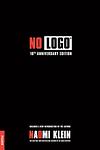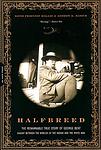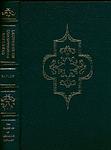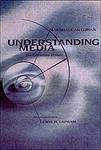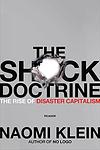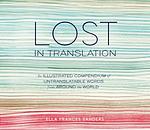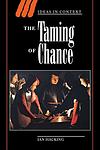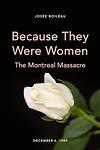The Greatest Canadian, Russian "Nonfiction" Books Since 1900
Click to learn how this list is calculated.
This list represents a comprehensive and trusted collection of the greatest books. Developed through a specialized algorithm, it brings together 290 'best of' book lists to form a definitive guide to the world's most acclaimed books. For those interested in how these books are chosen, additional details can be found on the rankings page.
Genres
Countries
Date Range
Reading Statistics
Click the button below to see how many of these books you've read!
Download
If you're interested in downloading this list as a CSV file for use in a spreadsheet application, you can easily do so by clicking the button below. Please note that to ensure a manageable file size and faster download, the CSV will include details for only the first 500 books.
Download-
1. The Gulag Archipelago by Aleksandr Solzhenitsyn
"The Gulag Archipelago" is a comprehensive and stark account of the Soviet Union's forced labor camp system. The narrative, based on the author's own experiences as a prisoner and on extensive research, documents the history, operation, and life inside the Gulag system. It also provides a critical examination of the regime's legal system, police operations, and political leadership. The book is an intense indictment of the Soviet Union's totalitarian regime, revealing its brutality, inhumanity, and vast scale of its prison camp network.
-
2. The Great Transformation by Karl Polanyi
The book in question is a seminal work in economic and social history that examines the development and impact of the modern market economy on global societies. It argues that the rise of market capitalism in the 19th century fundamentally transformed social structures and human relationships, with the commodification of land, labor, and money turning them into tradable goods. This transformation led to social dislocation and crises, prompting a counter-movement for social protection and the rise of the welfare state. The author challenges the idea that the market economy is a natural and inevitable form of social organization, instead presenting it as a constructed system with profound effects on the fabric of society.
-
3. My Childhood by Maxim Gorky
"My Childhood" is a poignant and powerful autobiographical account of a young boy's life in 19th-century Russia. The narrative explores the harsh realities of growing up in a dysfunctional family, with a cruel stepfather and an uncaring mother, against the backdrop of poverty and social unrest. The protagonist's struggles, resilience, and observations provide a vivid portrayal of the societal conditions of the time, while also illuminating the human capacity for hope and perseverance in the face of adversity.
-
4. Insight: A Study of Human Understanding by Bernard Lonergan
The book is a comprehensive exploration of human understanding and cognition from a philosophical perspective. It delves into the nature of knowledge, the process of knowing, and the dynamics of inquiry and learning. The author presents a detailed analysis of the human intellect and its operations, investigating the role of insight in decision-making, problem-solving, and discovery. The book also discusses the relationship between understanding and other cognitive faculties such as perception, memory, and imagination, while examining the impact of cultural, social, and historical factors on human understanding.
-
5. No Logo by Naomi Klein
This book explores the negative effects of corporate branding and globalization. It critiques the marketing strategies of large corporations, arguing that they exploit workers and manipulate consumers. The author also discusses how these corporations have a significant influence on culture and public space. The book suggests that consumer activism and grassroots movements can serve as effective counter-forces to corporate power.
-
6. Memoirs Of A Revolutionist by Vera Figner
"Memoirs of a Revolutionist" is a captivating autobiography that chronicles the life of a remarkable woman, detailing her journey from a privileged upbringing to becoming a prominent figure in the Russian revolutionary movement. Through her personal experiences and reflections, the author provides a vivid account of the political and social upheaval in 19th-century Russia, shedding light on the struggles, sacrifices, and triumphs of those dedicated to the cause of revolution. This thought-provoking memoir offers valuable insights into the complexities of revolution and the indomitable spirit of those who fight for change.
-
7. Notes From The Blockade by Lydia Ginzburg
"Notes From The Blockade" is a poignant memoir that provides a firsthand account of life during the Siege of Leningrad in World War II. The author, Lydia Ginzburg, vividly describes the hardships, hunger, and constant fear experienced by the city's residents, while also exploring the resilience and strength of the human spirit. Through her powerful narrative, Ginzburg offers a deeply personal and moving portrayal of survival amidst unimaginable circumstances.
-
8. The Medium Is The Massage by Marshall McLuhan
"The Medium Is The Massage" explores how media, more than the content it carries, influences and shapes human perception and society. The book argues that each medium, independent of content, creates a new environment that alters our sensory balance and social dynamics. It emphasizes that the medium through which we receive information—be it print, television, or radio—plays a crucial role in shaping our experiences and understanding of the world. The work is a seminal exploration of media theory, famously coining the phrase "the medium is the message," to highlight the profound impact of the medium itself over the content delivered through it.
-
9. Outliers by Malcolm Gladwell
The book examines the factors that contribute to high levels of success. Through a compilation of anecdotes and analyses of various cultural phenomena, it argues that success is not simply a result of individual talent or intelligence, but rather the result of a combination of opportunities, hidden advantages, cultural legacies, and the amount of time spent practicing a specific task. The author challenges the traditional notion of the "self-made" individual by emphasizing the importance of external influences and timing, such as being born in a certain era or having access to specific resources, in shaping one's ability to achieve extraordinary accomplishments.
-
10. The Moccasin Maker by E. Pauline Johnson
"The Moccasin Maker" is a collection of short stories and essays that delve into the lives and experiences of Indigenous people at the turn of the 20th century. Through a blend of fiction and autobiographical elements, the work explores themes of identity, cultural conflict, and the impact of colonization on Indigenous communities in Canada. The author, herself of mixed heritage, provides a nuanced portrayal of the struggles and resilience of her characters, often challenging the prevailing stereotypes and offering a unique perspective on the complexities of living between two worlds. The stories are notable for their rich characterizations and the author's lyrical prose, which captures the beauty and sorrow of the cultural landscape she describes.
-
11. The Curve Of Time by M. Wylie Blanchet
"The Curve of Time" is a captivating memoir that chronicles the summer voyages of a widowed mother and her five children as they explore the rugged coastline of British Columbia in the 1920s and 30s aboard their 25-foot boat. With lyrical prose and a pioneering spirit, the narrative weaves together the family's adventures and encounters with the natural world, indigenous communities, and isolated settlers. The book is a reflection on time, nature, and the enduring bonds of family, offering a timeless meditation on grief, resilience, and the enchanting mystery of the sea.
-
12. Halfbreed by Maria Campbell
This autobiographical book is a powerful and candid account of a Métis woman's struggles with identity, poverty, and racism in Canada. It chronicles her journey from a difficult childhood in a small Saskatchewan community, where she faced discrimination and personal tragedies, to her efforts as an adult to find her place in a society that often marginalized Indigenous people. The narrative is a poignant exploration of the author's search for self-acceptance, cultural pride, and her fight against the systemic injustices that Indigenous communities have endured. Her story is a testament to resilience and the strength found in embracing one's heritage.
-
13. Fallen Leaves by Vasily Rozanov
"Fallen Leaves" is a collection of philosophical and autobiographical essays that delve into the author's musings on a wide range of topics, including religion, sexuality, and society. The work reflects the author's critical examination of modernity and the decline of traditional values, as well as his personal sense of isolation and disillusionment with the contemporary world. Through a series of fragmented and often controversial reflections, the author grapples with the existential challenges of his time, presenting a candid and introspective exploration of the human condition at the turn of the 20th century.
-
14. My Life by Leon Trotsky
This autobiography provides a detailed account of the life of a prominent Russian revolutionary and Marxist theorist. The book traces his early life, education, and political development, his role in the Russian Revolution and Civil War, his leadership of the Red Army, and his expulsion from the Communist Party and subsequent exile. It offers a unique perspective on key events in 20th-century history and an insight into the author's complex personality and intellectual development.
-
15. The Glenn Gould Reader by Glenn Gould
"The Glenn Gould Reader" is a compilation of writings by a renowned Canadian pianist, known for his unique and insightful perspectives on music and culture. This collection offers a window into the artist's mind, featuring a diverse range of essays, articles, reviews, and interviews that explore his philosophies on performance, the intricacies of musical interpretation, and the role of technology in the arts. His articulate and often provocative commentary extends beyond classical music to touch upon a variety of subjects, reflecting his broad intellectual interests and distinctive voice in the world of music and beyond.
-
16. Conditioned Reflexes by Ivan Pavlov
"Conditioned Reflexes" is a groundbreaking work that delves into the study of behaviorism and the concept of classical conditioning. The author, a renowned physiologist, presents his findings on how an organism's responses can be triggered or conditioned by external stimuli, using his famous experiments with dogs as a prime example. The book significantly influenced the field of psychology and laid the foundation for future studies on learning and behavior.
-
17. Creatures that Once Were Men by Maksim Gorky
"Creatures that Once Were Men" is a collection of short stories that depict the harsh realities of life in the lower classes of Russian society. The stories are set in a night refuge for the homeless, where the characters, despite their grim circumstances, strive to maintain their humanity. Through their struggles, the author explores themes of poverty, addiction, despair, and the human spirit's resilience.
-
18. The Unwomanly Face Of War by Svetlana Alexievich
"The Unwomanly Face Of War" is a powerful and poignant collection of interviews with Soviet women who fought in World War II. Through their testimonies, the author sheds light on the often overlooked and untold stories of these brave women who served as snipers, pilots, nurses, and soldiers on the front lines. The book explores their experiences, sacrifices, and the lasting impact of war on their lives, providing a unique and intimate perspective on the realities of war from a female point of view.
-
19. State And Revolution by Vladimir Il’ich Lenin
This seminal political theory text delves into the role of the state in society and the necessity of proletarian revolution to dismantle the bourgeois state apparatus. It argues that the working class must seize state power, dismantle the existing state machinery, and establish a dictatorship of the proletariat as a transitional phase towards the creation of a classless, stateless society. The work critically analyzes the ideas of Marx and Engels on the state, while also addressing the practical aspects of revolution, including the suppression of the bourgeoisie by the proletariat. It serves as a theoretical foundation for understanding the dynamics of class struggle and the path towards socialism.
-
20. My Father's House by Sylvia Fraser
The book is a harrowing memoir that delves into the author's traumatic childhood, marked by the dark secret of her father's sexual abuse. The narrative unfolds as the author, after years of repressed memories, begins to confront the truth about her past. This journey of self-discovery and healing challenges her understanding of family, memory, and identity. The memoir is a poignant exploration of the long-term effects of abuse and the complex process of recovery, as the author grapples with the betrayal by a person who should have been her protector, ultimately striving to reclaim her sense of self.
-
21. Understanding Media by Marshall McLuhan
The book is a seminal work in media theory that explores the profound effects of different communication technologies on human thought, behavior, and society. The author argues that the medium through which information is conveyed is just as important, if not more so, than the content of the information itself. This concept is encapsulated in the famous phrase "the medium is the message," which suggests that the characteristics of the medium influence how the message is perceived and understood. The book examines a wide range of media, from the spoken word to the printed word, to television and beyond, and posits that each medium, by its very nature, shapes and controls the scale and form of human association and action.
-
22. The Shock Doctrine: The Rise of Disaster Capitalism by Naomi Klein
This book explores the concept of "disaster capitalism", the idea that global capitalism thrives on disaster and chaos. The author argues that free market policies are often pushed through while countries are reeling from wars, natural disasters, or economic crises. She provides a historical analysis of these events, from Chile in the 1970s, to Russia in the 1990s, to the war in Iraq, demonstrating how governments and corporations exploit these periods of shock to implement economic reforms that would otherwise be rejected.
-
23. Lost In Translation by Eva Hoffman
"Lost in Translation" is a memoir that explores the profound complexities of identity and language through the lens of a young girl's emigration from Poland to Canada and then to the United States. The narrative delves into the emotional and psychological challenges of adapting to new cultures, the sense of displacement, and the search for belonging. It poignantly captures the experience of losing one's homeland and the struggle to assimilate while maintaining a connection to one's roots. The author reflects on the nuances of language and the deep connection between language and self, offering insights into the immigrant experience and the transformative power of embracing multiple worlds.
-
24. The Taming of Chance by Ian Hacking
"The Taming of Chance" delves into the evolution of the concept of probability and its societal implications. The book takes the reader through the historical progression of probability and statistics, illustrating how they have shaped and been shaped by societal norms. The author highlights the profound impact of this mathematical concept on various aspects of life, including law, science, and philosophy, and how it has fundamentally changed our perception of the world.
-
25. The Montreal Massacre by Louise Malette and Marie Chalouh
The book provides a detailed account of a tragic event that took place at an engineering school in Montreal, where a gunman targeted female students, resulting in the loss of numerous lives. The authors delve into the societal and cultural factors that may have contributed to the perpetrator's motivations, examining issues of gender-based violence and misogyny. Through interviews, personal reflections, and analysis, the book seeks to honor the victims and explore the broader implications of the event for Canadian society and the ongoing struggle for gender equality.
Reading Statistics
Click the button below to see how many of these books you've read!
Download
If you're interested in downloading this list as a CSV file for use in a spreadsheet application, you can easily do so by clicking the button below. Please note that to ensure a manageable file size and faster download, the CSV will include details for only the first 500 books.
Download



